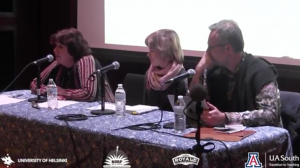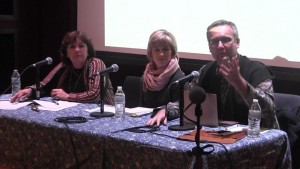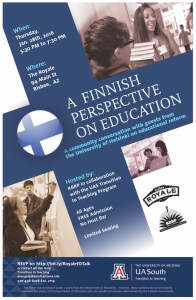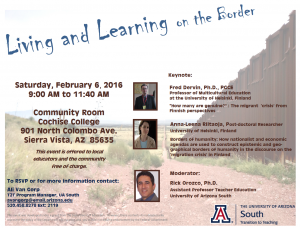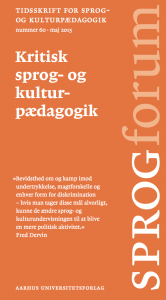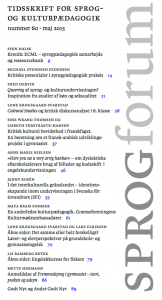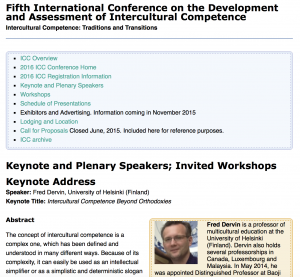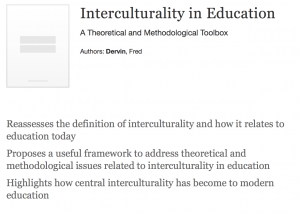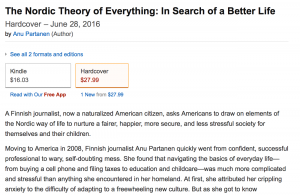Call for Chapters
Discourse Analysis and Interculturality
Eds. Nathalie Auger (University of Montpellier, France),
Fred Dervin (University of Helsinki, Finland) &
Regis Machart (Universiti Putra Malaysia)
Deadline for abstracts: 15th March 2016
The notion of interculturality is currently being revised, renewed and given new meanings. For instance there is a clear shift from an overemphasis on the cultural to the inter- of the intercultural. The ideologies hidden behind discourses of interculturality are also increasingly being unearthed and criticised. There is in fact much more going on when people meet interculturally than simply the transfer of information about their culture and approaching the ‘intercultural’ from a constructionist has become a necessity. Discourse analysis appears to be a fruitful and promising tool to examine this renewed form of interculturality. Unfortunately the use of discourse analysis in relation to interculturality is often minimal although the authors claim to be doing it. This collected volume proposes to serve as a discourse toolbox for working on interculturality.
Discourse analysis is a broad and diverse field that relies on many and varied approaches. It starts from the claim that one needs to look beyond the sentence boundary to explore the use of language in terms of construction, function and social action. As such Discourse Analysis can help us to examine the political meanings of texts, the importance of contexts and the production process on the meanings of what people say, and the influence of power on what goes on when people meet. Discourse Analysis is used in many fields such as cultural studies, education, communication, postcolonial studies, linguistics, etc. and can be conducted in different ways. Conversation analysis, the ethnography of communication, Critical discourse analysis (CDA), rhetorical political analysis, discursive psychology, Interactional sociolinguistics, Enunciation and Dialogism all represent different forms of Discourse Analysis. Important for research on interculturality today is the argument that discourses cannot but be unstable, variable and sometimes incoherent.
The editors wish to attract scholars who are interested in giving strength and meaning to the use of Discourse Analysis in relation to research on interculturality.
Potential authors should submit a proposal dealing with interculturality in any context of encounters (education, business, study abroad, etc.). Each chapter should introduce a clear approach to Discourse Analysis and demonstrate how it can be used to analyse an example of interculturality. The author should:
– Explain his/her focus and purpose
– Discuss how interculturality is conceptualized in the chapter
– Introduce his/her assumptions and traditions related to Discourse Analysis
– Present the data (collection)
– Present and discuss the dimensions of analysis
– Discuss the pros and cons of the kind of Discourse Analysis, especially in relation to researchers’ reflexivity.
The volume is intended for readers who wish to find out the basics about different ways of using Discourse Analysis in relation to interculturality.
Deadlines
Abstract of proposed chapter (300 words): 15th March 2016
Answer to authors: 31st March 2016
Full chapters to be submitted: 1st September 2016
Authors are invited to submit a 300-word proposal (including a few lines about the author(s) in English to the editors (nathalie.auger@univ-montp3.fr, fred.dervin@helsinki.fi, rmachart@hotmail.com) – please no pdf!
The proposed book will be submitted to Routledge.

